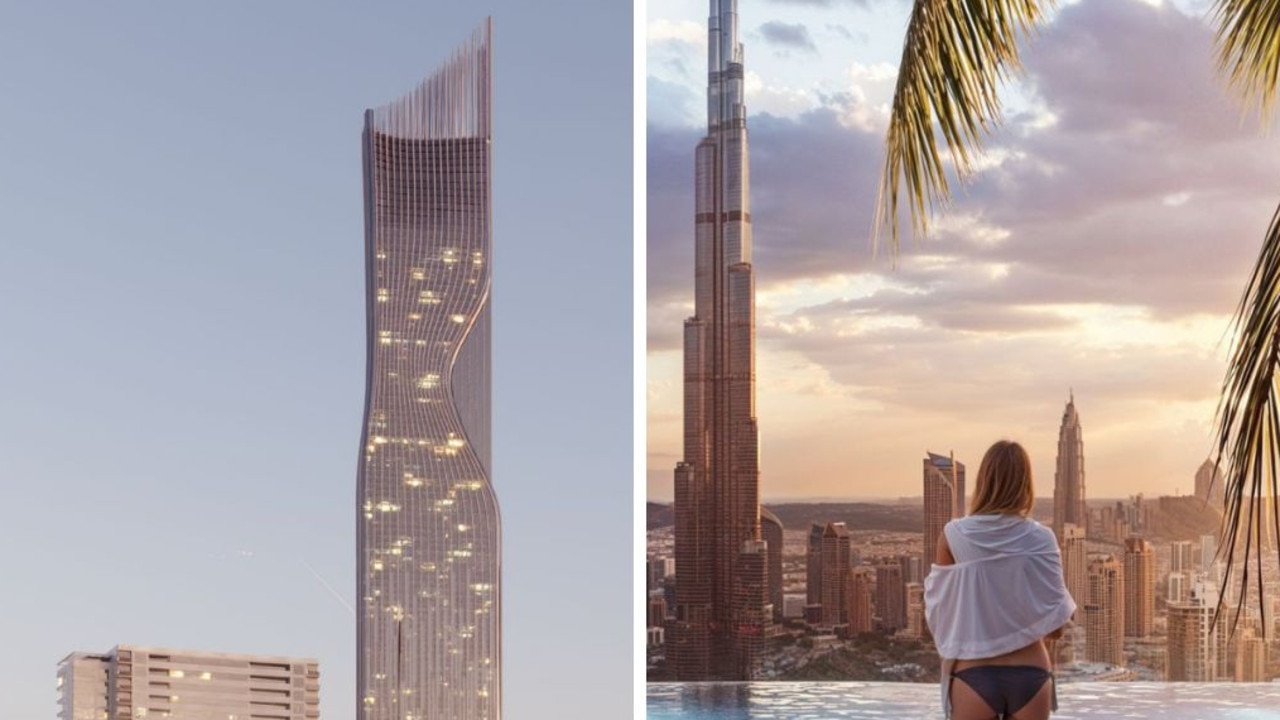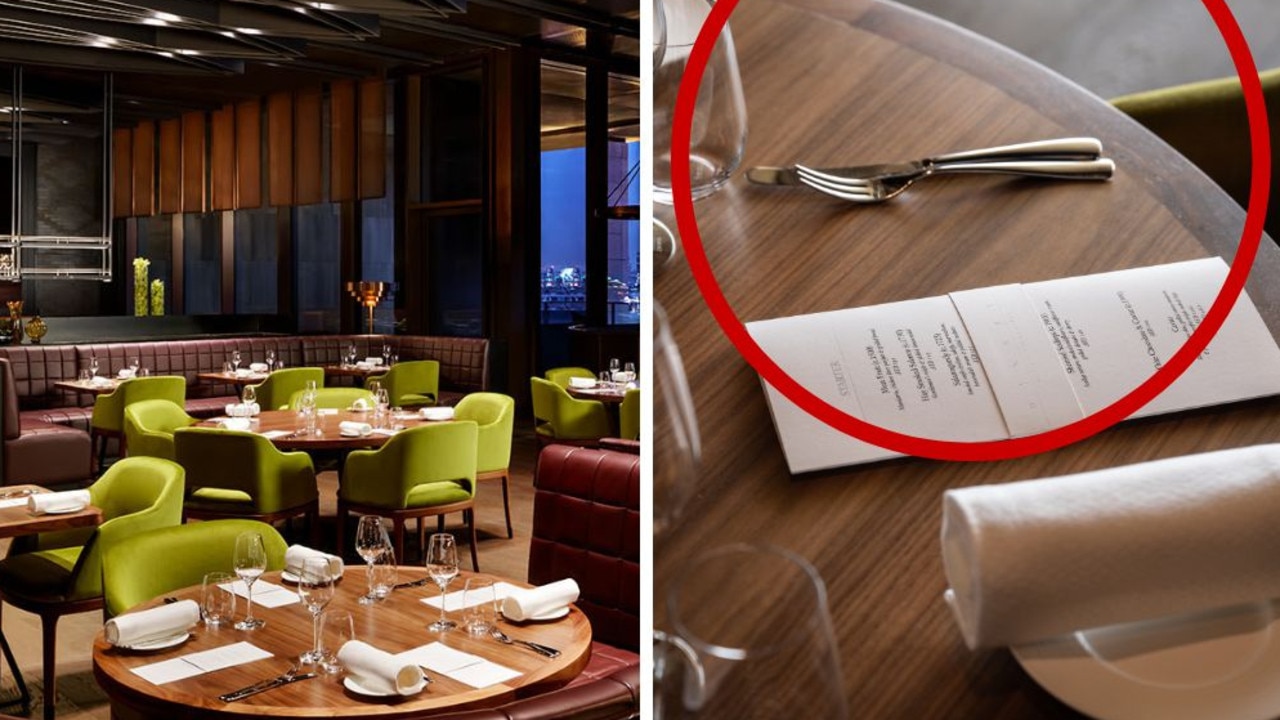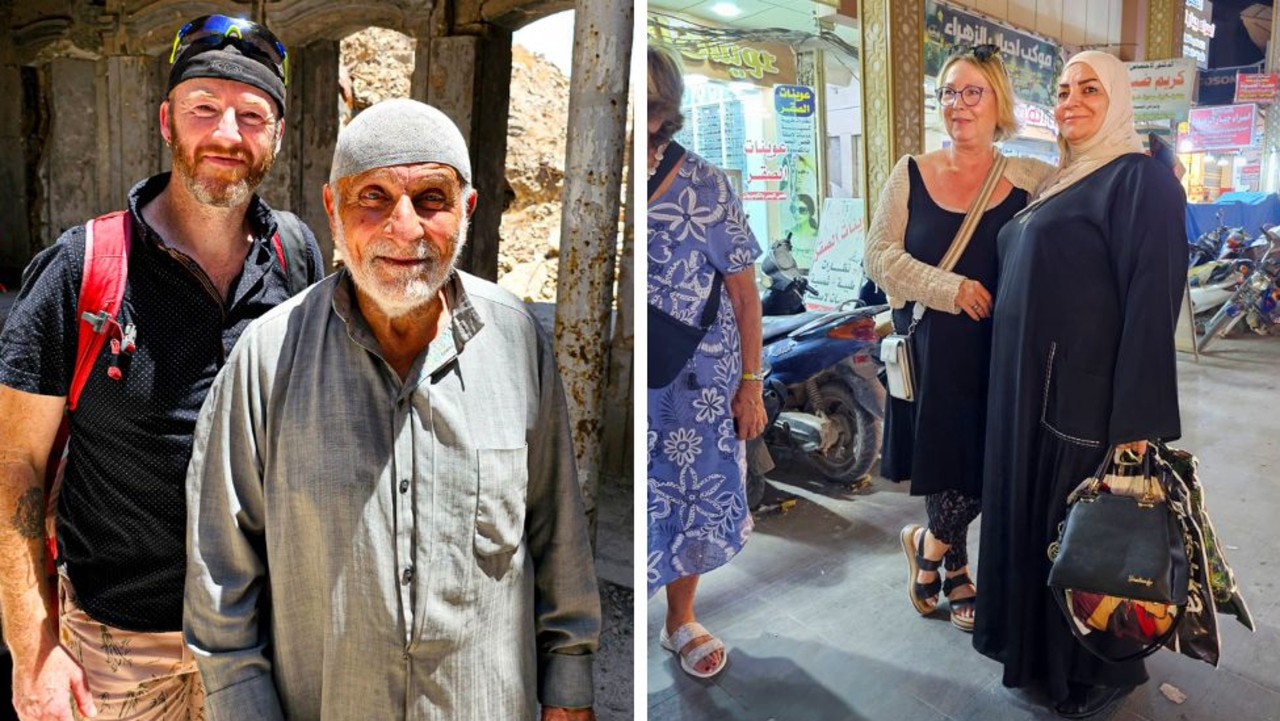The real victims of Iran’s empty war cries
MENACING calls ring out as thousands of protesters march through the streets. Their signs all bear a bloodthirsty message.
“DOWN WITH ISRAEL!”
“DOWN WITH AMERICA!” The menacing calls rang through the air as thousands of protesters carrying placards bearing the same message streamed through the streets of the Iranian city of Shiraz. On a stage covered with camouflage webbing, primary school students in military fatigues and the yellow headbands of suicide bombers sang fiery resistance songs. In a square down the road, an actor in a witch’s costume with a Jewish star on its chest chased an actor in a bumblebee costume as an audience of preschool children shrieked with fright. And on lamp posts and building throughout the city, billboards displayed anti-Semitic caricatures of Jews with engorged noses and Nazi swastikas. It was one of hundreds of identical marches staged around Iran on July 1 for Al-Quds, or Jerusalem Day. Initiated in 1979, the year of Iran’s Islamic revolution, it calls for Israel’s destruction as payback for the lot of the Palestinian people. The spectacle contrasted deeply with the gracious hospitality I’d experienced while travelling through Iran. Wherever I went I had been received with open arms, even more so after identifying myself as a Jew. In the city of Istafan, a policeman spent an entire afternoon showing me a dozen different synagogues where members of the city’s small but long-established Jewish community go to pray. When I misplaced my passport in the city of Kashan, a group of shopkeepers banded together to get it back to me despite the small fortune it would’ve fetched on the black market. And from speaking to other tourists in Iran, I knew my red-carpet treatment was in no way unique. “I knew the people would be welcoming because I was told that much by my Iranian friends at home,” said Nael Hatahet, a backpacker from France. “But I never thought they would be so welcoming. They give constantly without asking anything back.” Adds Huang Yanpei, a Chinese lady from Singapore travelling around solo: “My friends all said ‘you are crazy, why do you want to go to Iran?’ but I have found it to be very safe here.” THE GOOD SAMARITAN Shortly after arriving in Shiraz I was approached by yet another member of Iran’s unofficial welcome squad. “Welcome to Iran!” said a bespectacled man in his thirties. “Where are you from? Where are you are going?” His name was Soroush, he was a journalist like myself and we become instant friends. After telling him I was going to see Arg-e-Karim Khani, a medieval citadel in the heart of the city, he asked if he could join me. I told him I’d be delighted. But we never made it to the citadel because it was Al-Quds Day and a stream of protesters blocked our path. Soroush suggested we take a lengthy detour but curiosity got the better of me and I went in for a closer look. In moments we were swept along a thronging crowd of women in full-body-length black “chadors”, men with flowing beards and a disproportionate number of teenagers. “Many of these people are poor villagers who the government buses into the city for Al-Quds Day,” Soroush explained. “They don’t force them to attend but the people know they might have trouble getting government assistance if they don’t. It’s also mandatory for government workers and many university and school students to attend. There are also some middle-class people here from Shiraz, maybe 10 per cent of the population, but they’re not in tune with mainstream Iranian beliefs. All most of us want is a better economy.” Despite my obvious Western appearance, I never felt threatened or intimidated at the rally. Protesters posed for photos with beaming smiles in what on the surface appeared to be a legitimate exhibition of solidarity for the Palestinian people. Then I saw the grotesque anti-Semitic billboards: a rabbi peering into a mirror image of Adolf Hitler. Another rabbi stirring a pot while holding a ‘Holocaust’ cookbook. Israeli Prime Minister Benjamin Netanyahu in a Nazi uniform. I looked sadly at Soroush, who placed a hand on my shoulder. “I’m so sorry,” he said. “Lets get out of here.” “No,” I replied. “I’m going to document this.” “Suit yourself. But I’m leaving. I don’t like the feeling of being here.” PREPARING FOR WAR As I walked on alone, I took the opportunity to interview a group of high-school students. “Iran is preparing for war with Israel,” one of them told me. “God willing it will happen soon.” I asked him when the invasion was scheduled. “We don’t know exactly but within 25 years,” he replied, echoing a recent statement by the Iranian Revolution Guard that Israel would be wiped off the map within a quarter of a century. I asked the teenagers if they were really willing to die for their cause. “Yes,” they replied in unison. Added their leader: “We will kill the Zionists and we will kill ISIS. They are not Muslim. ISIS are killing Muslim.” I asked which was worse: Israel or ISIS? “Israel!” they all said “Why?” I asked. “Because they are Zionists,” answered another. Later I spoke to a second group of teenagers and asked what they thought about Jews. “We have no problem with Jews. We have many in Iran. Our enemy is not the Jews; it’s the Zionists in Israel.” When I asked why they hated Zionists, the answers were delivered with practised precision. “Because the Zionists are terrorists ... because they kill innocent children … because Israel is an artificial county … because they don’t belong in the Middle East … the whole world hates Israel … they have nuclear bombs … we will destroy Israel in 25 years.” I saw little point in asking the obvious. Why would Iran invade a militarily superior nuclear-armed nation? Until now I had been treated as a respected international observer. Why risk it now? A few boys in the group asked for selfies with me. I agreed on the condition they drop their placards, headbands and flags. They did so happily and they all had turns posing for the camera. We shook hands and they filed in with thousands of others mums, dads and kids into a giant courtyard mosque for more fiery sermons. But I’d had enough. NINETEEN EIGHTY-FOUR So why does Iran continue to fund Al-Quds Day following its signing last year of a permanent nuclear deal with the UN as an indication of its desire rejoin the global community? I posed the question to Soroush when we met for dinner later than evening. He compared Al-Quds Day to Nineteen Eighty-Four, the dystopian novel by George Orwell in which an authoritarian regime pursues a constant state of war to justify its authority. “The Iranian Government needs an obvious enemy so it has an excuse for using so much of the country’s resources for the army and its own enrichment,” he said. “They use Israel as an excuse to rob us.” It all made perfect sense. Israel is an abstract enemy that is easy to demonise and totally out of reach. The Iranian Government prohibits its nationals from travelling there and won’t let Israelis visit Iran. And by assigning a far-off date for an invasion, it can justify exorbitant military spending well into the future. Last year Iran spent 6 per cent of its GDP on defence compared to a global average of 2.1 per cent, according to the International Institute for Strategic Studies. The real victims of the Al-Quds Day are neither the Jews it offends nor the Israelis it attempts to unnerve. The victims are the protesters themselves along with ordinary Iranians like Soroush who are stereotyped as fanatics when images of Al-Quads Day are shared around the world.



